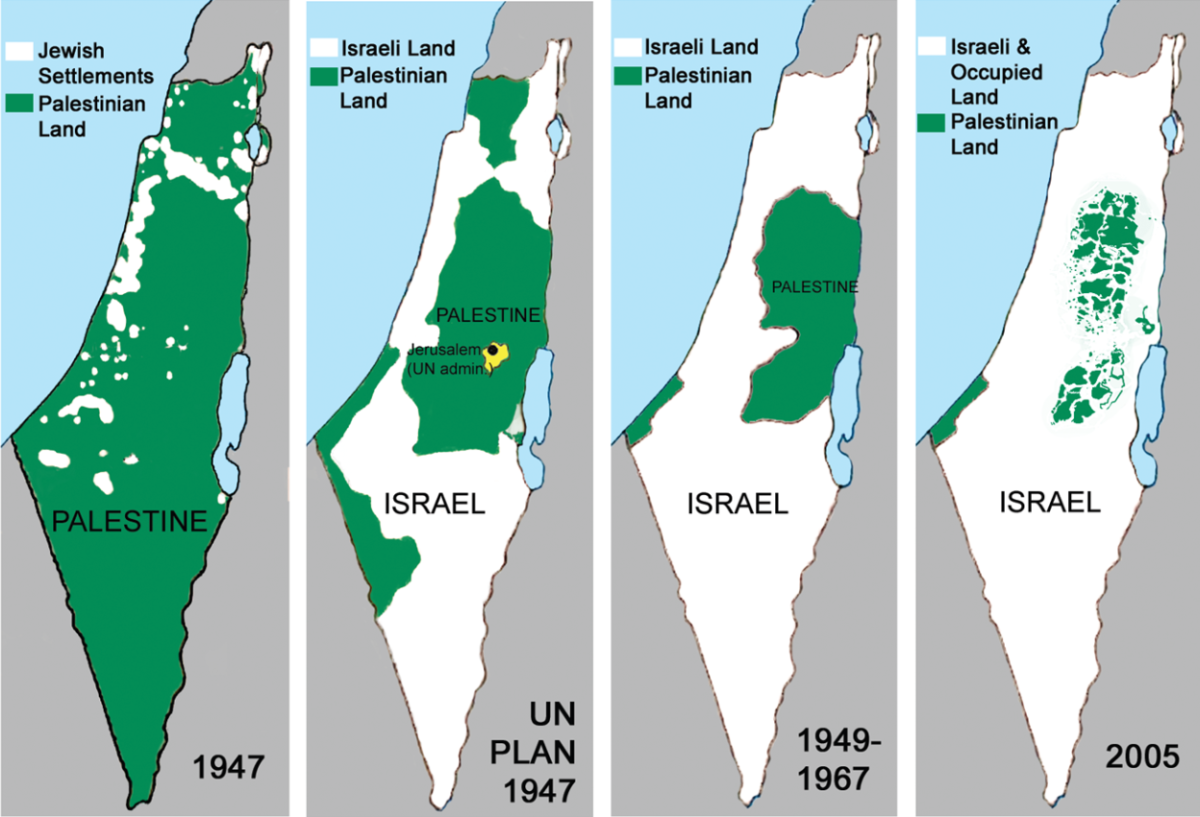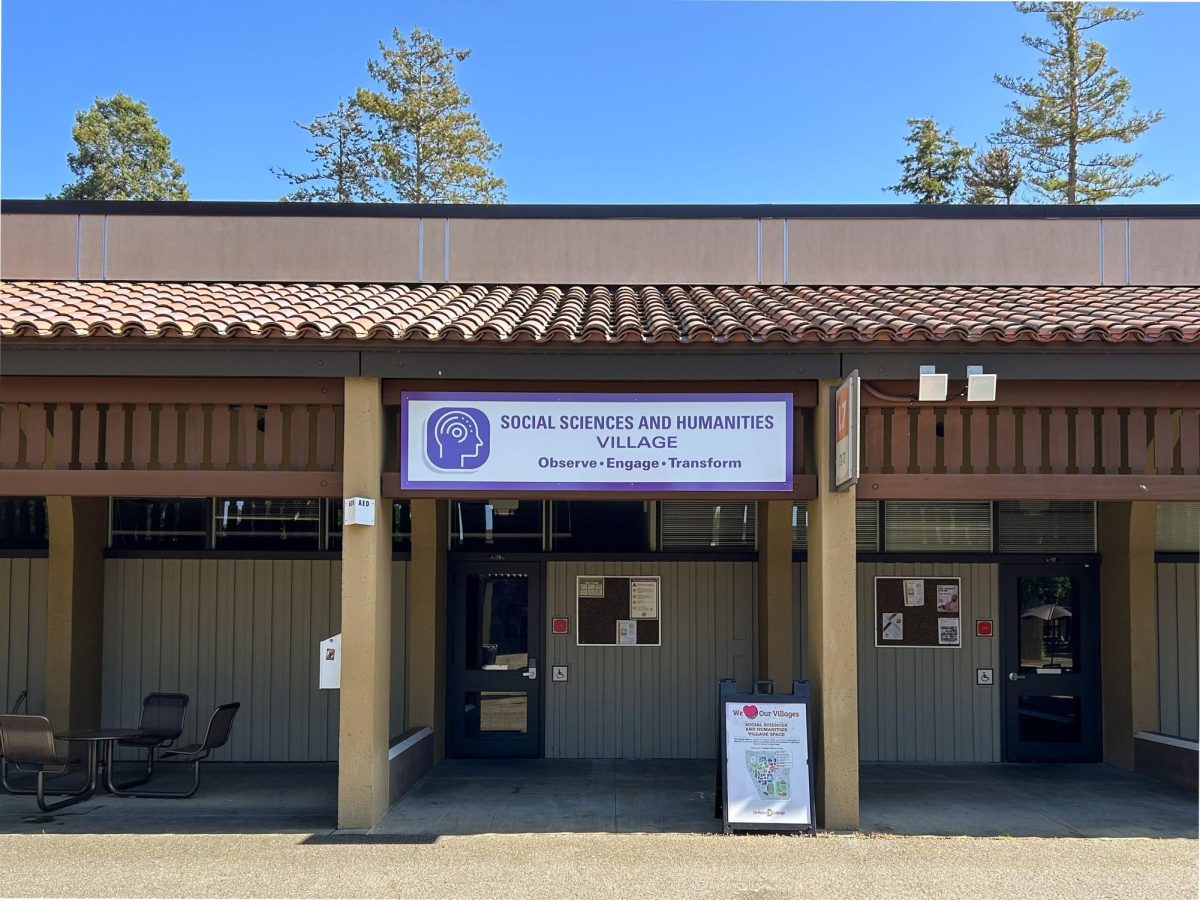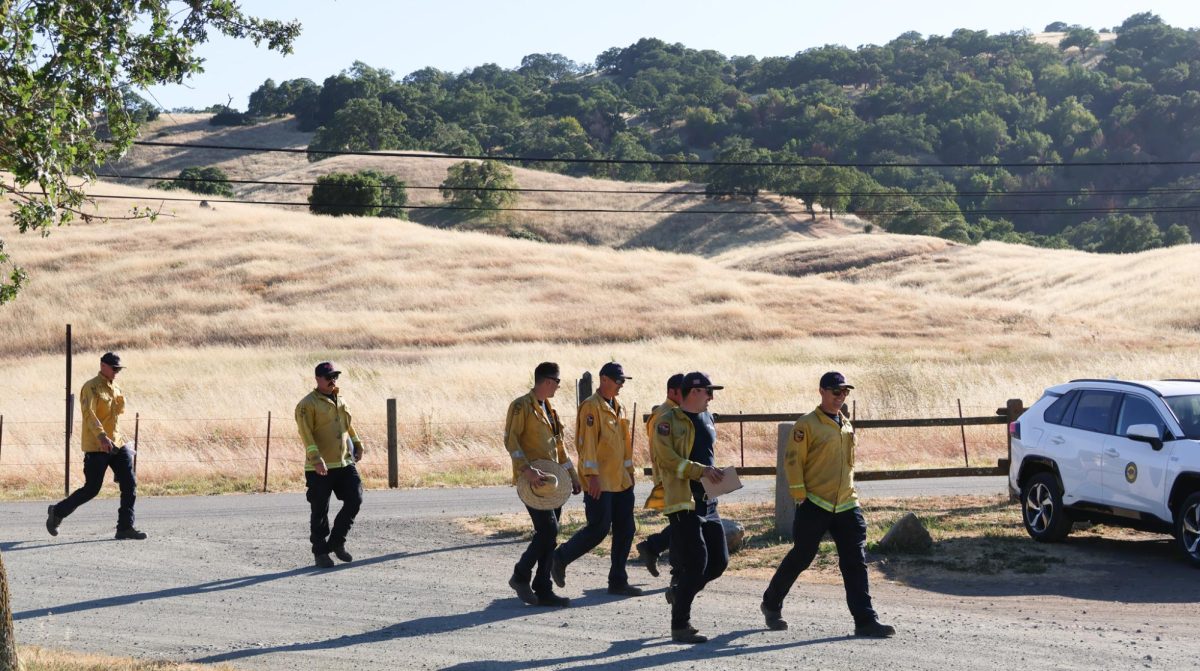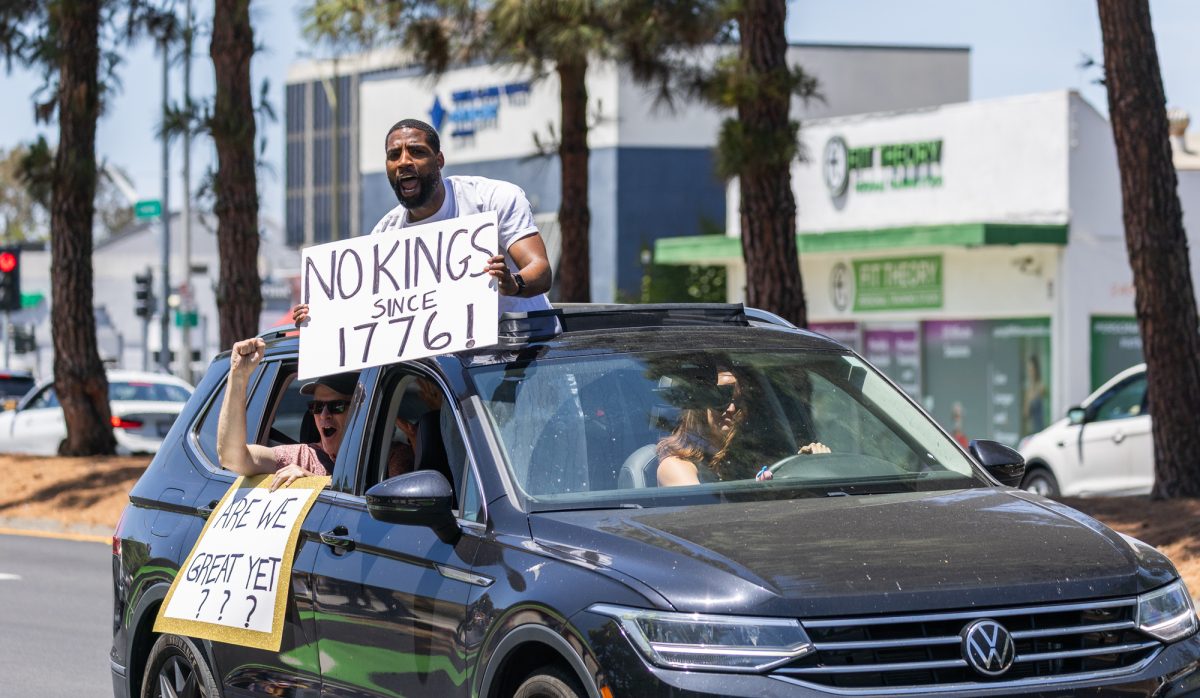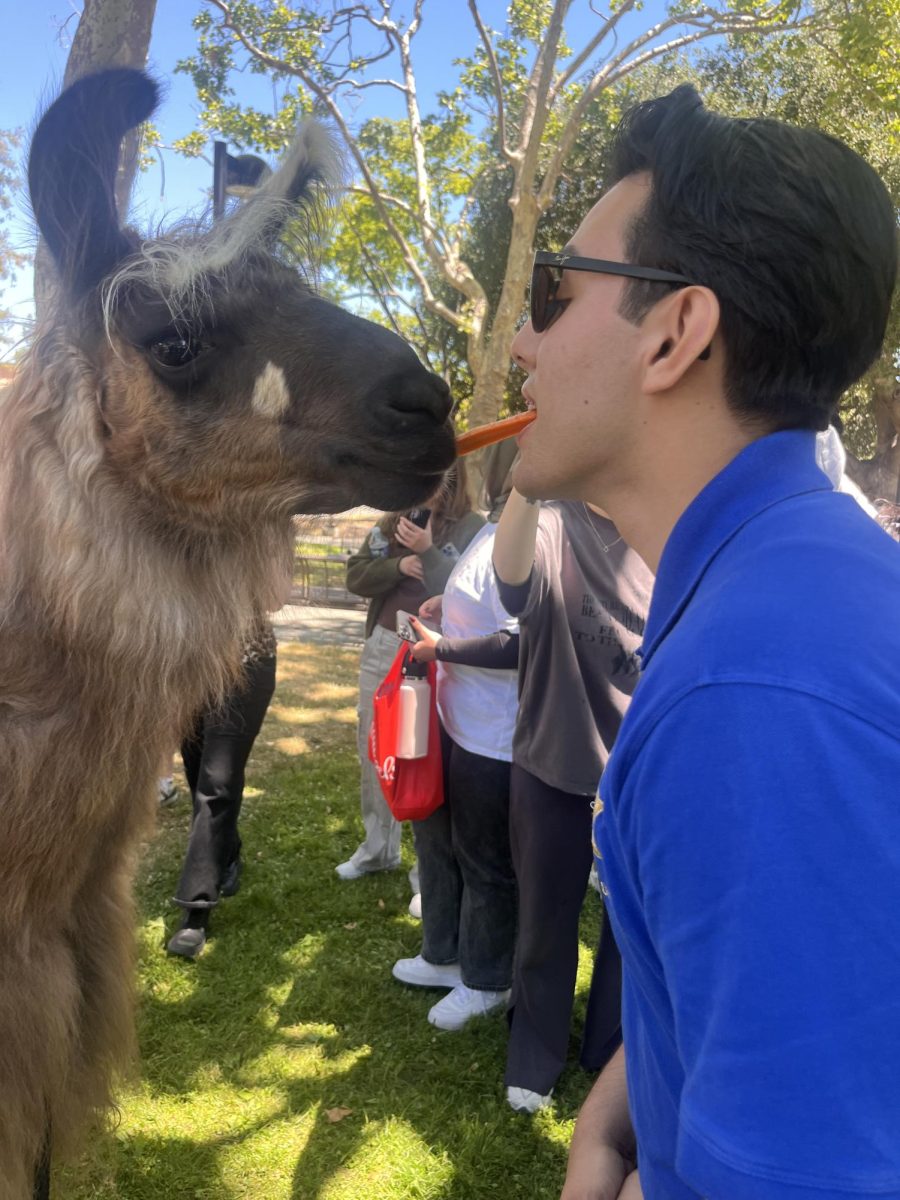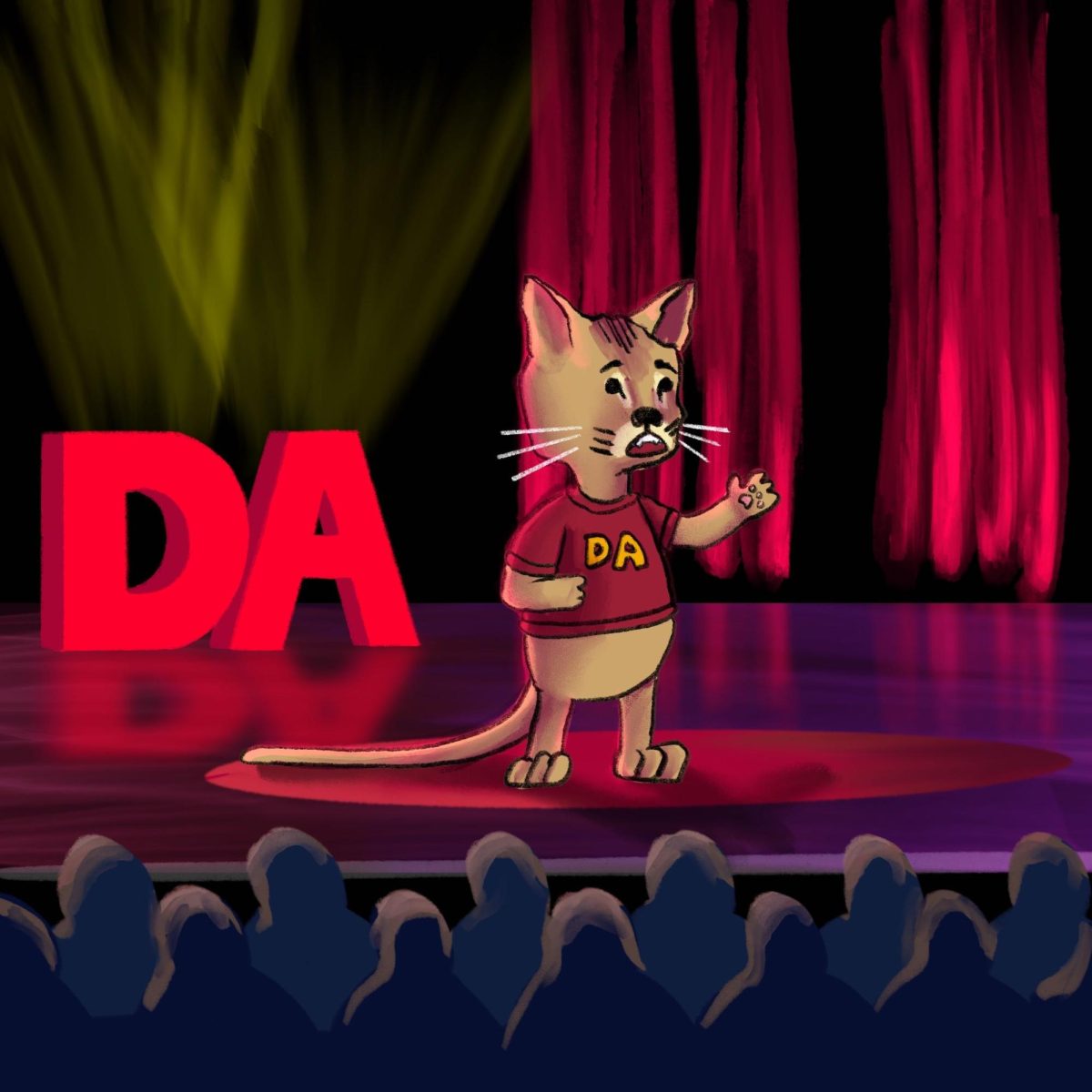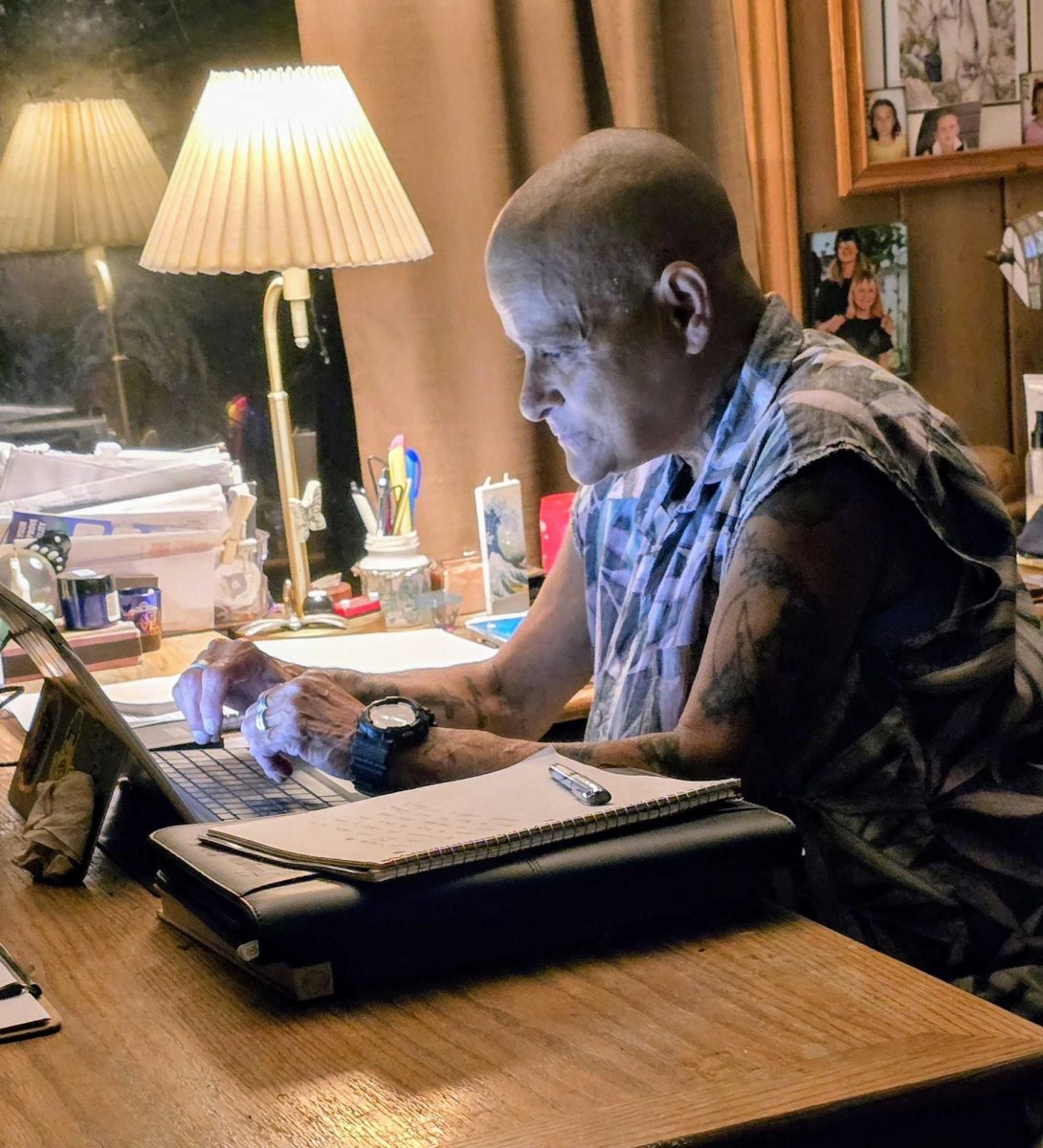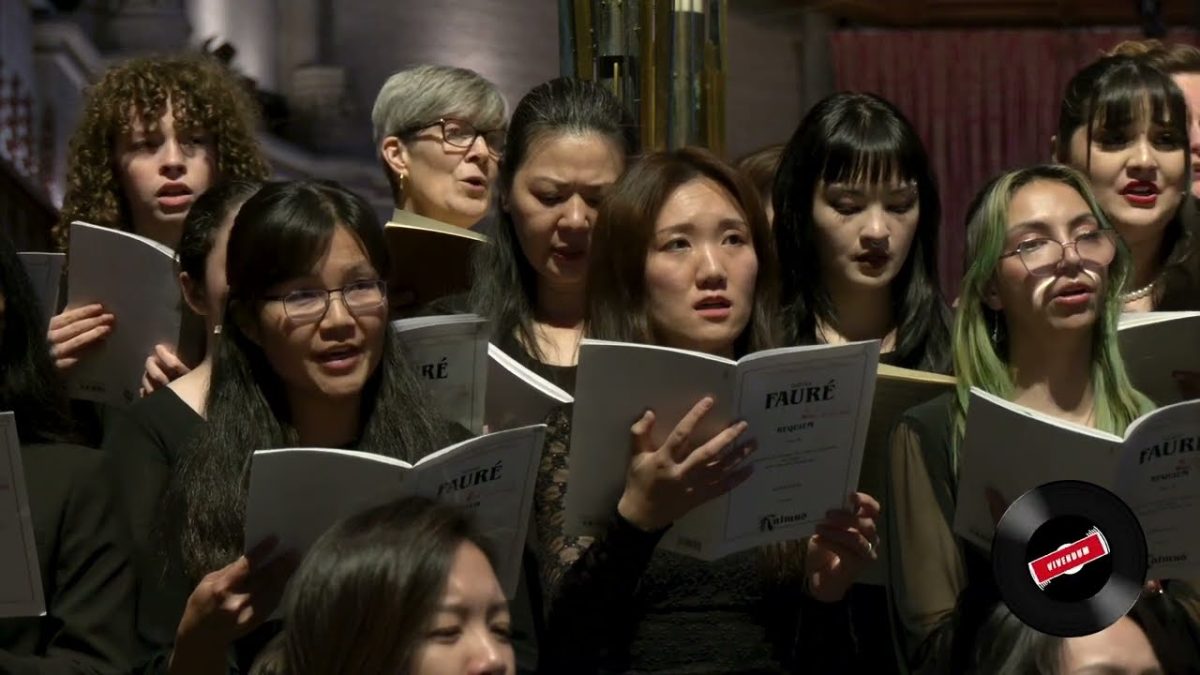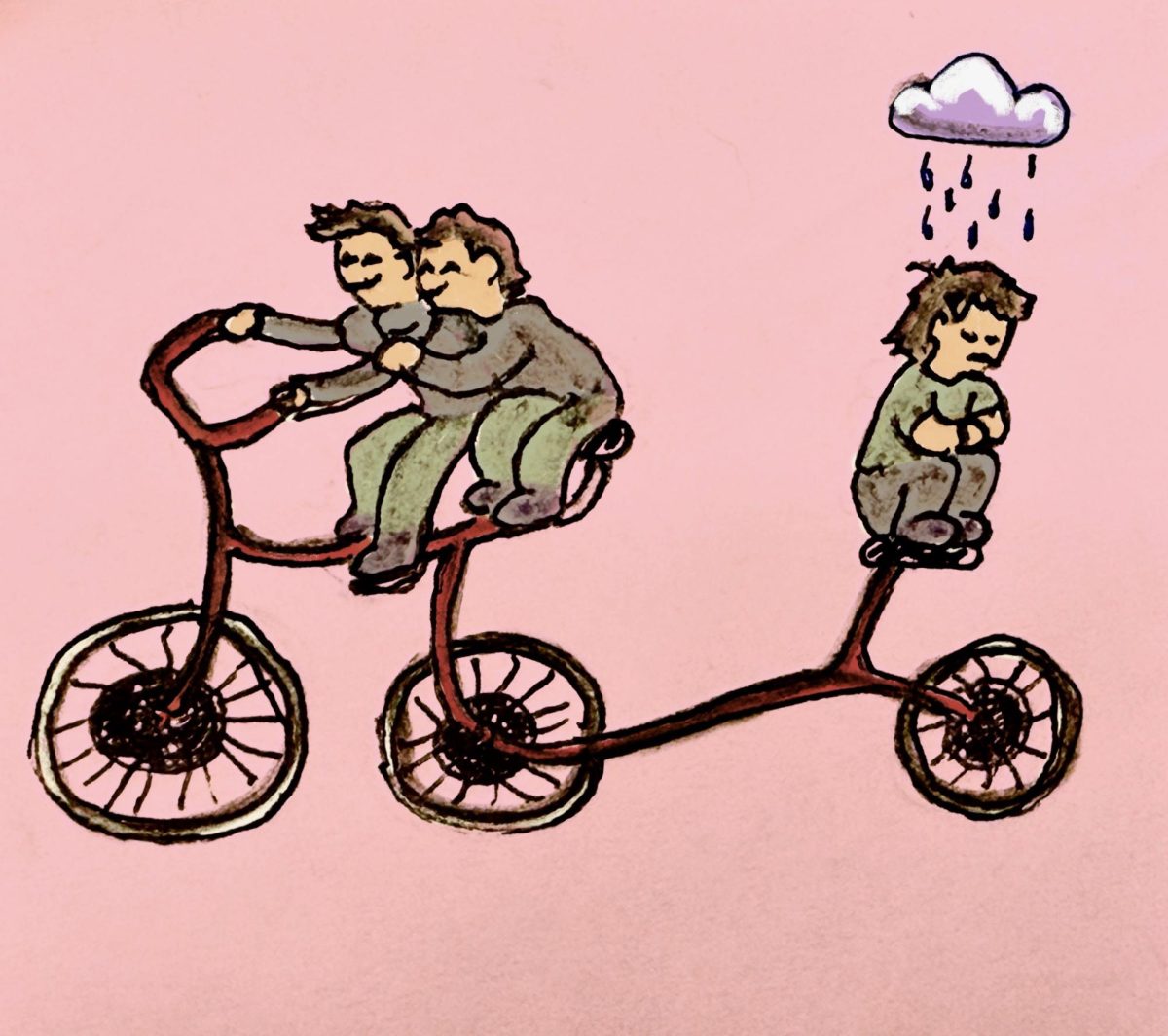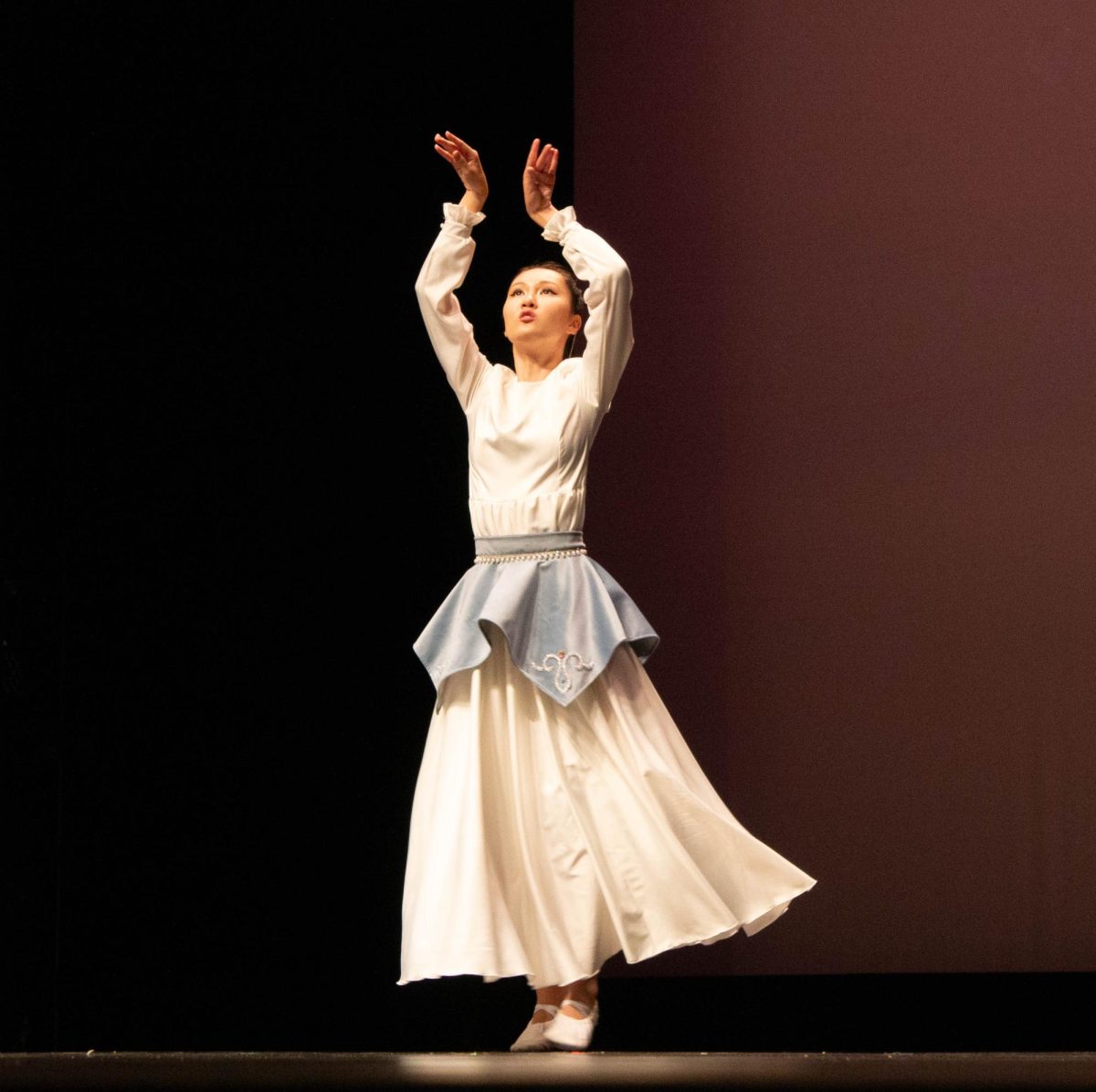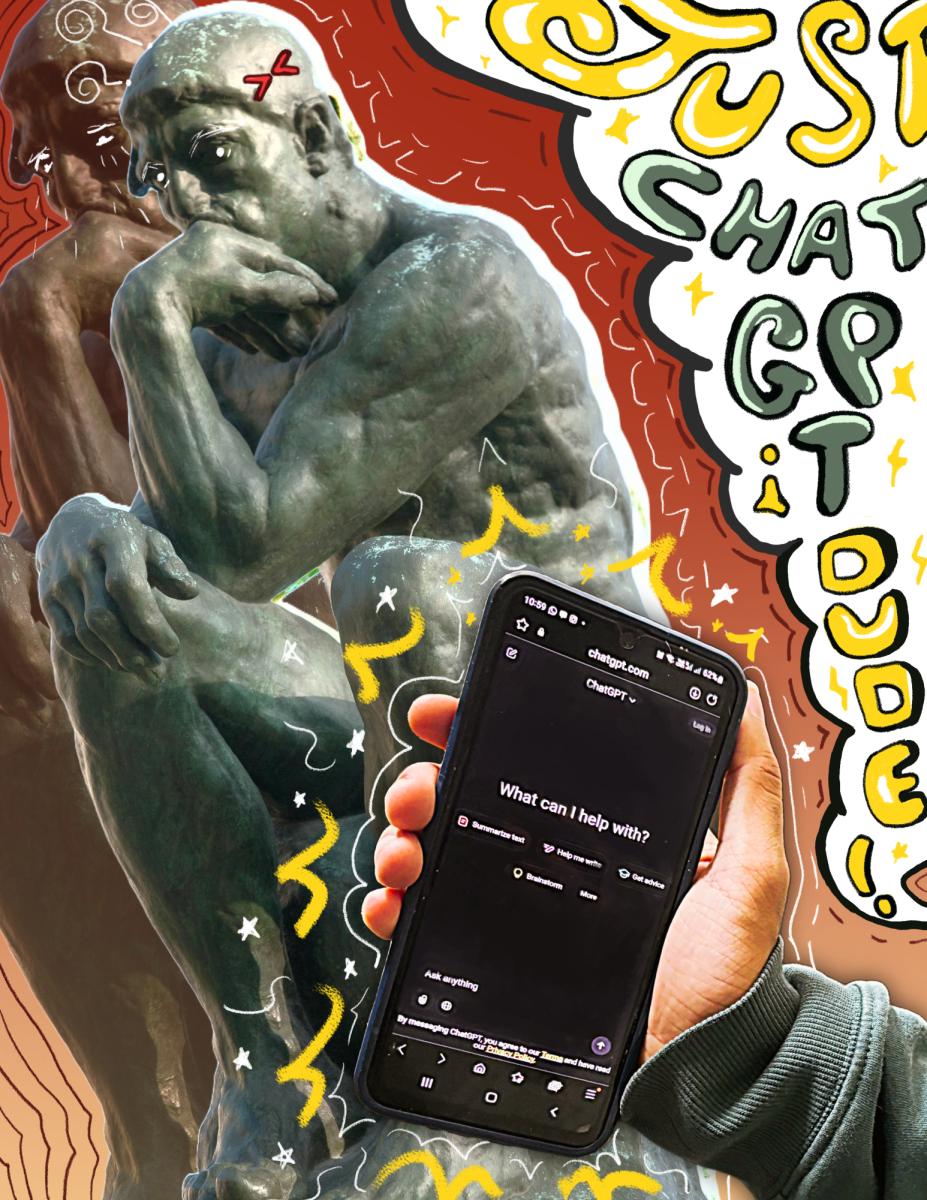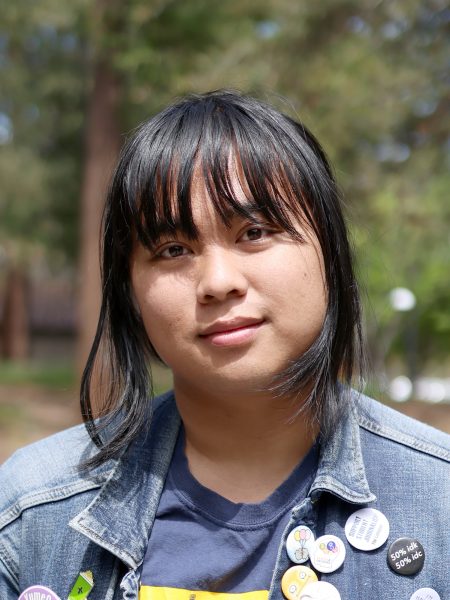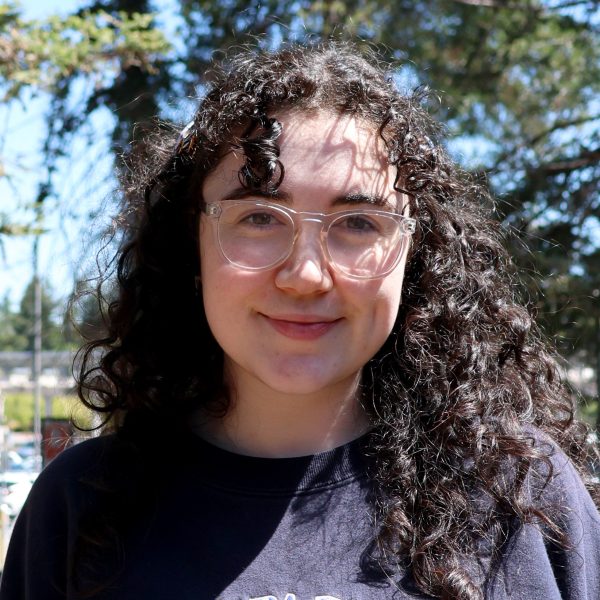About 70 students, faculty and community members attended a teach-in about the Israeli siege on Gaza on Nov. 14 in the Kirsch Center, co-sponsored by the Vasconcellos Institute for Democracy in Action, Jewish Voice for Peace’s south bay chapter and both Foothill College and De Anza’s Muslim Student Associations.
The event hosted two speakers, Joel Beinin, a retired Stanford professor of middle east history and member of Jewish Voice for Peace, and Fadi Saba, a Palestinian-American stateless refugee and advocate for human rights.
Beinin gave a presentation on the history of Israel and Palestine as well as updated information on the extent of the siege. A recording of his presentation is available on the VIDA website. Saba presented on his personal experiences as well as a map with a timeline of Israeli occupation in Palestine. He used this map to illustrate why a two-state solution would be incredibly difficult because of how illegal Israeli settlements have divided up the West Bank.
Amadeusz Sanchez, 18, political science major, said he was glad the two speakers covered a factual account of the history.
“Joel (Beinin) was talking about the build up to Oct. 7; how the Israeli government was giving money to Hamas. A lot of news has straight up ignored that fact, or has ignored facts that Joel (Beinin) and Fadi (Saba) both brought up,” Sanchez said. “Like how Fadi (Saba) brought up the fact that a two-state solution seems even more unlikely now. I feel like a lot of news and media, especially social media, doesn’t talk about a lot of nuances.”
VIDA director Cynthia Kaufman said she hopes students will get a more comprehensive view of the different players in Palestinian and Israeli history, as well as the role that the U.S. plays in the siege, rather than embracing a ‘good guys versus bad guys’ narrative.
“Young people tend to be very empathetic to the Palestinians and to be very concerned about their national rights to have a home and to be safe. I think that’s really good. But sometimes young people then don’t differentiate between the different players in the situation,” Kaufman said. “Hamas is not what I would consider a positive liberation organization and I think that their attack on Israeli civilians was truly horrific. It’s easy for people who only get their news from social media to suppose that all Palestinians are good guys and all Israelis are bad guys; that’s just not (the case). Israeli civilians are human beings who deserve to be cared for and respected and Hamas is not an organization that I think people should support.”
Kaufman said her main goal was to get people to value humanity above all else while still considering the big picture.
“For me, it was really important that the event honor the loss of lives on both sides and so that anybody who spoke would honor the tragedy of the Israelis who were killed, and also would honor the Palestinians who were killed and are still being killed,” Kaufman said.
Kaufman said that some people are taking Israel’s actions as an excuse to justify their antisemitism, which she thinks invalidates real criticism of Israel.
“I think it’s really important for there to be space for people to criticize the State of Israel,” Kaufman said. “Antisemitism is a very real and very dangerous problem and we’re in a period of rising antisemitism. So I think it’s quite dangerous (for Jews) when people associate Jewishness with the State of Israel (because people will blame Jews for Israel’s actions).”
During the teach-in, Kaufman encouraged attendees to “call for a ceasefire and to protect the Jewish and Muslim people in (their) lives.” Kaufman said that both antisemitism and Islamophobia have made life increasingly dangerous for Jews and Muslims.
“While the history and the politics and the geopolitics are complicated, there’s another level which is also incredibly simple; everyone has the right to live in peace and security. Nothing justifies killing civilians,” Kaufman said at the start of the teach-in. “As Naomi Klein has said, in this situation we should all be ‘on the side of the children and against the guns.’ I feel that the most urgent thing we can do is to call for an immediate ceasefire, and it’s shocking how politicians haven’t come out in favor of a ceasefire that would save civilian lives.”
Dan Gotesdyner, 19, Inter Club Council chair for marketing and a computer science major, said that he and other Jewish students believe that a ceasefire is “the stupidest idea someone could do with Hamas right now,” because it “allowed the (militant group) to rearm, to get weaponry and kill more civilians.”
“(Hamas’s) aim is to continue these attacks until Israel is eradicated entirely,” Gotesdyner said. “There can be no peace with such an organization and Israel will not allow that (sort of) peace.”
Gotesdyner said he thinks there is so much overlap between antisemitism and anti-Zionism that he sees them as equivalent.
“Of course, someone can hate us Jews but still believe we deserve to have a homeland — Christian Zionists, for example,” Gotesdyner said. “However, it’s important to know that antisemitism and anti-Zionism work together, and are different from (disagreeing with the Israeli government).”
Gotesdyner said that he and some students felt uncomfortable with Kaufman and Beinin speaking at the teach-in as they both are involved with Jewish Voice for Peace, which Gotesdyner said would reflect badly on De Anza because of the organization’s support for the Popular Front for the Liberation of Palestine, a left-wing Palestinian political party which Gotesdyner referred to as a terrorist organization.
“I did not go to the event and I know other Jewish students with family in Israel did not go to the event because they saw (Beinin) was speaking,” Gotesdyner said. “I’m sure that (the organizers of the event) may think that they presented the (Israeli) side charitably, but it’s not on (them) to decide that — it’s for the Jewish students on campus to decide whether or not they feel comfortable.”
During Beinin’s speaking portion of the teach-in, he gave a lesson on the history of Israel and Palestine and did not mention nor promote Jewish Voice for Peace as an organization. Beinin did mention that he has family being held hostage in Gaza.
Sanchez said he thought Beinin and Saba balanced each other out well.
“A lot of media poses (Jewish people and Palestinians) against each other and although (Beinin and Saba) weren’t able to come to a complete consensus, they were able to (lead the attendees to) engage in a civil discussion, (which was) pretty impactful to me,” Sanchez said. “At the end of the day, we’re all people, and we can still talk about these issues. There is nothing to be gained from hating each other blindly.”
In 2017, the DASG Senate passed a resolution for the college to divest from Israel due to the uptick in illegal settlements in the West Bank. The Canary Mission, a website dedicated to “combat(ing) the rise in antisemitism on college campuses,” has since doxxed five of the DASG senators who voted for the resolution, as well as the resolution’s presenter Viana Marie Lopez.
Four years later in June, the DASG Senate passed two more resolutions on Israel and Palestine, one of which expressed solidarity with Palestinians in Israel’s 2021 siege on Gaza, and the other of which condemned both antisemitism and Islamophobia.
Another 2021 DASG resolution from April condemned antisemitism and clearly defined it as separate from anti-Zionism. Anti-Zionism is the opposition to the nationalist ideology that Jewish people have the right to the state of Israel in historic Palestine according to Al-Jazeera.
The U.S. House of Representatives passed a resolution on Dec. 5 that “clearly and firmly states that anti-Zionism is antisemitism.”
So far, this year’s DASG Senate has not passed any resolutions, nor made a comment to the student body about Israel’s current siege on Gaza.
Similarly, De Anza has remained silent, aside from providing links to mental health resources at the top of weekly Quick Notes and a banner on the MyPortal home page, which has been removed as of Dec. 5.
Asiya Shaikh, 19, business administration and economics major, said the main thing that has stood out to her is how silent the school has been about the siege.
“De Anza tries to be involved (as a school),” Shaikh said. “So it’s disappointing that they haven’t really talked about it because there’s both Israeli students and Palestinian students (in the school) and I feel like for both of them it’s silent.”
Shaikh said that she wants the school to encourage students to educate themselves and check that the information they read is factual; she also said she hopes that people check in with others around them who are impacted.
“(Admin, faculty and students could help by) being less silent, doing something to educate more people so they can understand what’s happening. My personal opinion is that asking (administration) to make a really bold statement is just not going to happen, and I don’t think (a statement from administration) would actually help anything,” Saikh said. “But if people are encouraged to learn, and they’re encouraged to understand what’s happening, then I think that’s more helpful and something that can really easily be done without causing issues.”
Fatima Jinnah, Honors counselor and career planning instructor at Foothill, said that her campus has also been quiet, which was shocking to her.
“There’s just so much silence,” Jinnah said. “I thought, ‘Am I perhaps in some sort of weird nightmare?’ I had to pinch myself; ‘Are people experiencing this? Are they seeing this? They must not be seeing it if they’re remaining silent.’ It just seemed so incongruent to me.”
Batoul Berro, 24, political science major, said the silence at De Anza makes it harder for students to speak up. To combat this, Berro has started an International Relations Advocacy Club to provide space for students to discuss international issues such as the siege on Gaza. However, that has proven difficult because some students have expressed fear of retaliation.
“I’ve noticed that it’s been dangerous for Arab and Muslim students recently; there’s violence (against people) being openly pro-Palestinian,” Berro said. “I don’t know if that is a reason the school is hesitant (to take) a stance. Regardless, it’s such an important topic that (administration) should at least make a statement about it.”
Foothill’s social justice club released a statement of solidarity with Palestine on Nov. 29. The statement highlighted the parallel between the indigenous land the school occupies, which is acknowledged by Foothill, and the Israeli occupation of Palestine, which the school has not acknowledged.
Foothill President Kristina Whalen addressed the Foothill-De Anza community in her Oct. 25 President’s Message, saying she, along with De Anza President Lloyd Holmes and Chancellor Lee Lambert, had been under pressure from community groups, faculty and students to issue a statement on either side. Whalen said she would not take a stance on the siege as it might endanger students if she does so.
So far, President Holmes has not addressed the community regarding the siege.
According to an informal La Voz survey, some students and faculty feel safe talking about the Oct. 7 attack and the siege on Gaza on campus, while others still feel afraid speaking about it after receiving blowback and harassment off-campus.
“I can’t think of a way to share my opinion without alienating someone, and that’s the last thing I want to do,” Alicia Mullens, meteorology professor, wrote in her survey response. “I have both Jewish and Palestinian students in my classes, and I feel that to share my thoughts on the issue would alienate one or both of those groups.”
Mullens wrote that she didn’t feel like sharing her thoughts would endanger her, but that her job now was to listen, empathize and understand.
“All I know is there are many broken lives and so much pain caused by this conflict, and I’d want my students to feel like my classroom is a refuge from the pain happening in the world around us,” Mullens wrote. “Discussing this conflict in a way that involves sharing my privileged viewpoint would take away from that.”
Jinnah, who has been advocating for the district to take action and for people to get involved, said her main goal is to break the silence.
“I am talking about (Palestine) as much as I can because no one else is talking about it,” Jinnah said. “My hope is that we can borrow each other’s courage; if one person takes that risk, that’ll make it safer for the next person who’s thinking the same thing but feels like they can’t, or doesn’t know how.”
Jinnah said it is odd for both De Anza and Foothill to not amplify the voices of marginalized and oppressed people, who she said in this case are the Palestinians.
“I thought that (De Anza and Foothill saying) nothing is better than (making a pro-Israel statement). But because of this current genocide, I’m just sick and tired of thinking that way,” Jinnah said. “I’m just done with the lesser of two evils. We need to amplify the voices of marginalized and oppressed people. And at De Anza and Foothill, we say that those are our values.“
Jinnah gave a public comment to the Foothill Academic Senate, where she called on her colleagues to get involved.
“If you cannot speak up on what the United Nations is calling an ethnic cleansing and genocide, at least let us do what the ACLU is asking colleges to do: protect the rights of our students to speak freely and protest,” Jinnah said in her public comment. “Foothill College students are afraid to speak out. Some faculty are afraid to speak out. We must create space for them as a campus culture.”
Jinnah also spoke to the Faculty Association, the union that represents staff at Foothill and De Anza, about the occupation and its history.
“One of the things that FA is considering is putting together guiding principles to help determine when and if they speak up about geopolitical issues,” Jinnah said. “To me, this is very relevant to us right now because the United States is funding what’s happening; we’re funding the bombardment. We’re funding the occupation. We’re funding the apartheid to the tune of $3.8 billion a year.”
Jinnah said she wanted people in FA to understand what’s happening right now so they can make a pro-Palestinian statement, and encourage the district to do so as well.
“I want them to take a stand. I want our whole district to take the stand and the stand I want them to take is that Palestinians deserve their self determination,” Jinnah said. “They deserve their liberty, and we need to end the occupation and apartheid and create a secular state there so that everyone has equal rights.“
The Allies for Peace & Justice in Palestine Collective at Foothill College, in conjunction with the Palestinian Youth Movement’s bay area chapter, held a virtual teach-in on Dec. 8.
This is a developing story with more updates coming.



